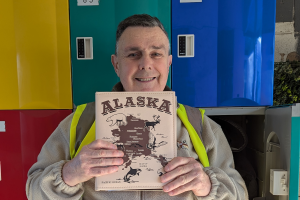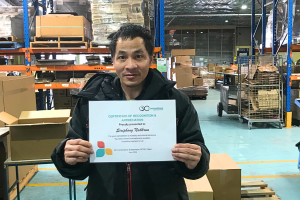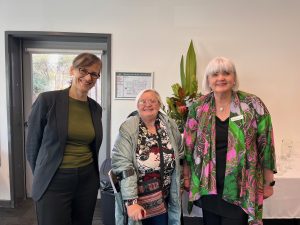Have you ever wondered what the difference is between a Plan Manager and a Support Coordinator?
Do you know how NDIS goals are identified and actioned?
We sat down with Karly, Team Leader of Support Coordination at OC Connections, to get the answers.
What’s the difference?
The port-of-call planners.
They work directly with NDIS to build plans with participants.
The financial administrators.
They organise the budgets and accounts to ensure participants have flexibility and are able to make the most of their NDIS funding.
NDIS plans can choose to include a Plan Management section, but plans can also be self-managed or agency-managed.
The liaison.
They link participants with services, allied health teams, hospitals and providers.
Participants must have Support Coordination funding in their NDIS plan.
Participants can have funding for all three, or only one.
What does a Support Coordinator do?
Support Coordinators review budgets and complete documentation for plan reviews with the NDIS. They help participants to create and choose their goals, and liaise closely with all stakeholders to ensure participants receive the services they need to achieve their goals.
To effectively manage a participant’s goals, they maintain ongoing relationships with participants, and their families, providers and support workers. They organise check-ins and communicate with a disability support network to holistically support the person.
How do Support Coordinators support a participant to choose their goals?
When a participant commences at OC Connections, their Support Coordinator will receive their plan with accompanying goals, which is often ready to be customised with participants and their families.
Firstly, Support Coordinators meet with a participant and their family/carer to discuss what they want to achieve and ensure that the information on their NDIS plan is going to get participants the specific funding they require to achieve their goals. They talk to participants about the things they like and look to the future to organise a timeline with strategies and service options.
Next, they link participants with support services that will be a positive fit. Support Coordinators know how to use the right language when defining goals to ensure participants can make the most out of their funding in different areas of support.
For example, if a participant aims to move into Supported Independent Living, their Support Coordinator will work on strategies and help to appeal to the NDIS for specific funding. If a participant wants to make friends and try new experiences, Support Coordinators can link them with Day Support options to “increase community participation”. These kind of open-ended goals expand options for participants to try different activities and figure out what their future goals may be.
How do Support Coordinators determine when a goal has been achieved?
Many goals are rolling goals. Open-ended goals help participants to test and explore different avenues of support with their allocated funding.
For example, a participant may want to increase their social participation from three to five days a week. Once they’ve settled into a five-day routine in Day Support, the goal would be achieved and re-worked to attending for five days on an ongoing basis.
Closed goals are goals with specific endings – for example, if a participant wants to learn how to barista and undergoes a course, that goal will be achieved and a new goal will be created, such as finding employment or volunteering.
How do Support Coordinators celebrate a goal achievement with a participant?
Whether small or big, goal achievements are important to highlight and celebrate. It’s about encouragement and positive reinforcement.
Support Coordinators might go to meet with participants and their families, or organise a phone call, to celebrate accomplishments. They may take photos to share with family and include in NDIS reporting. Involving close friends and family members extends the support circle and allows celebrations to spread from support work to the participant’s everyday life.
Depending on a participant’s consent, Support Coordinators also share positive stories about goal achievements with providers and support communities. Social media, such as Facebook and Instagram, and community newsletters, can be utilised for telling uplifting stories about any type of accomplishment, big or small. This provides encouragement for the participant that has achieved their goal while inspiring other participants and families who may engage with the story.
Not every day is a good day. Small wins are just as important to celebrate as big wins, and sharing these can make all the difference in bolstering confidence and maintaining open lines of communication.





